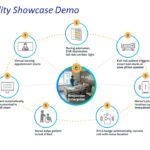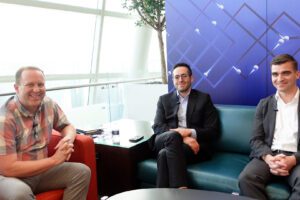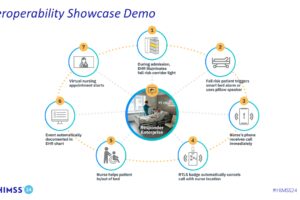DeepScribe is dedicated to creating medical notes that are not just accurate, but have a human feel that reflects the individual physician’s style. Matthew Ko, cofounder and president, COO, explains in this video how they developed a highly customizable and accurate ambient voice solution.
Ko says that the company “built up one of the world’s largest data set of patient conversations collected around the world” during four years. They also consulted with physicians to create more than 135 customizations that each user can choose from. The company works with each individual user to suggest customizations that will produce notes in the desired style.
Their own, purpose-built LLM is now more accurate than the human scribes they use for comparison. In addition to medical accuracy, they measure the number of edits made by the doctor for style, which they call “subjective accuracy.” After using the tool for about 20 days and applying recommended customizations, doctors find they hardly ever have to change the generated note.
Watch the video for more information on EHR integration, how the ambient voice solution changes the physician/patient interaction, and more.
Learn more about DeepScribe: https://www.deepscribe.ai/
Check out other articles in our ambient clinical voice series:
- Context Makes Innovaccer More than a Note Generator
- How Comprehend PT Takes Clinical Notes Our of Physical Therapists’ Hands
- Sunoh’s Ambient Clinical Voice Automates Clinician Note Creation
- Corti Becomes Part of the Conversation
- Nuance Is Setting the Bar for Ambient Clinical Voice
- A Look at Nabla Copilot’s Automatic Clinical Documentation
- Fully Automated Medical Scribes Using AI
- Oracle Health Goes Beyond Visit Summaries with Its Use of AI in Their EHR
- Augmedix Derives More Value from Automated Generation of Medical Notes
- Real-Time Clinical Note Generation from Mutuo Health Solutions
- The Evolution of Suki’s Ambient Clinical Voice Solution and What Differentiates It in the Market
- Outsourcing Clinical Notes to an Expert-Machine Collaboration Using Ambient Clinical Voice
- Abridge Aims at Transparency, Reliability, and Credibility with Their Ambient Clinical Voice Solution
- NextGen Focusing on AI to Improve Workflows and on Street Medicine
Listen and subscribe to the Healthcare IT Today Interviews Podcast to hear all the latest insights from experts in healthcare IT.
And for an exclusive look at our top stories, subscribe to our newsletter and YouTube.
Tell us what you think. Contact us here or on Twitter at @hcitoday. And if you’re interested in advertising with us, check out our various advertising packages and request our Media Kit.













